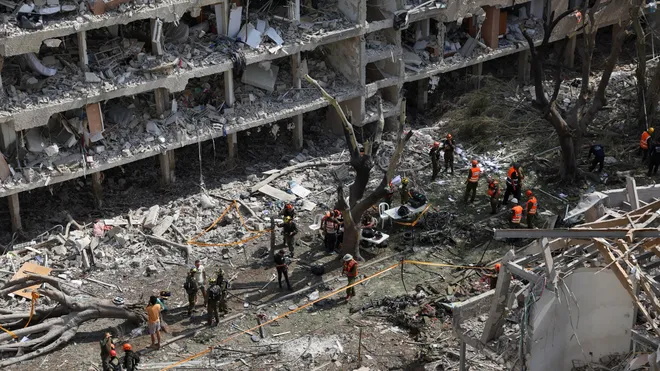On June 23, 2025, Iran launched a direct attack on the US Air Force base in Qatar, targeting the critical Al Udeid Air Base near Doha. This bold move comes as a retaliatory response to recent US airstrikes on Iranian nuclear facilities. Explosions were reported across the Qatari capital, sending shockwaves through the region and raising fears of a broader regional conflict. Eyewitnesses described hearing blasts and sirens late into the night, with Iranian state media confirming the operation as a direct answer to what it called American aggression.
Immediate Impact and Regional Response
The attack on the US Air Force base in Qatar marks a significant escalation in the already volatile standoff between Iran and the United States. Al Udeid Air Base is the largest American military installation in the Middle East, housing approximately 10,000 US personnel and serving as the forward headquarters for CENTCOM operations. The base is vital for US missions in Iraq, Syria, and beyond, and also supports British and allied forces in the region.
Immediately following the attack, the US embassy in Qatar advised American citizens to shelter in place and exercise heightened vigilance. Access to the base has been restricted, and security measures have been tightened across the country. Qatari authorities, while not directly targeted, are in close communication with US officials, seeking to de-escalate tensions and prevent further violence.
Key Point Summary
- Attack Details: Iran launched multiple missiles at Al Udeid Air Base, the largest US military facility in the Middle East.
- Casualties and Damage: No immediate reports of significant casualties or infrastructure damage have been confirmed.
- US Response: The US has restricted base access and relocated military assets for safety.
- Regional Tensions: The attack follows US airstrikes on Iranian nuclear sites, escalating an already tense situation between Iran, the US, and Israel.
Escalating Conflict and Strategic Moves
Iran’s decision to attack the US Air Force base in Qatar was not made in isolation. Over the weekend, the US conducted extensive airstrikes on three key Iranian nuclear facilities, actions that Tehran described as a major violation of its sovereignty. Iranian President Mahmoud Pezeshkian publicly warned that Iran would not let these strikes go unanswered, emphasizing the nation’s resolve to defend itself.
In the days leading up to the attack, the US had already begun reducing its military footprint at Al Udeid, moving aircraft and personnel to safer locations in Europe and elsewhere. Satellite imagery showed a dramatic reduction in the number of aircraft at the base, with only a handful remaining by June 19. This preemptive move was likely intended to minimize risk to US forces and equipment.
The US has also increased its military presence in the region, repositioning fighter jets and naval assets to counter potential threats. Despite these precautions, the attack on Al Udeid demonstrates Iran’s capability and willingness to strike US interests directly.
Broader Implications for the Middle East and Beyond
The attack on the US Air Force base in Qatar has heightened concerns about the potential for a full-scale regional war. The Middle East is already grappling with ongoing conflicts between Israel and Iran, and the involvement of the United States adds a dangerous new dimension. Experts warn that further escalation could destabilize global energy markets, given the strategic importance of the Persian Gulf.
Qatar, which maintains strong security ties with the US, finds itself caught in the middle. The Qatari government has been working behind the scenes to mediate between the parties, but the situation remains precarious. Iran has explicitly warned that it will target any US bases in the region if provoked, and the recent attack underscores the seriousness of these threats.
What Comes Next?
The situation remains fluid, with both the US and Iran signaling resolve. President Donald Trump has convened his national security team to assess the options and potential responses. The White House has emphasized that it is closely monitoring developments and is prepared to act to protect American interests.
For now, the international community is watching closely, hoping for de-escalation. However, with both sides unwilling to back down, the risk of further conflict remains high. The attack on the US Air Force base in Qatar is a stark reminder of how quickly tensions can spiral out of control in the Middle East.
Call to Action
Stay informed about the latest developments regarding the Iran attack on the US Air Force base in Qatar. Follow trusted news outlets and official government advisories for updates and safety recommendations. Share your thoughts and concerns about the escalating situation in the comments below.
